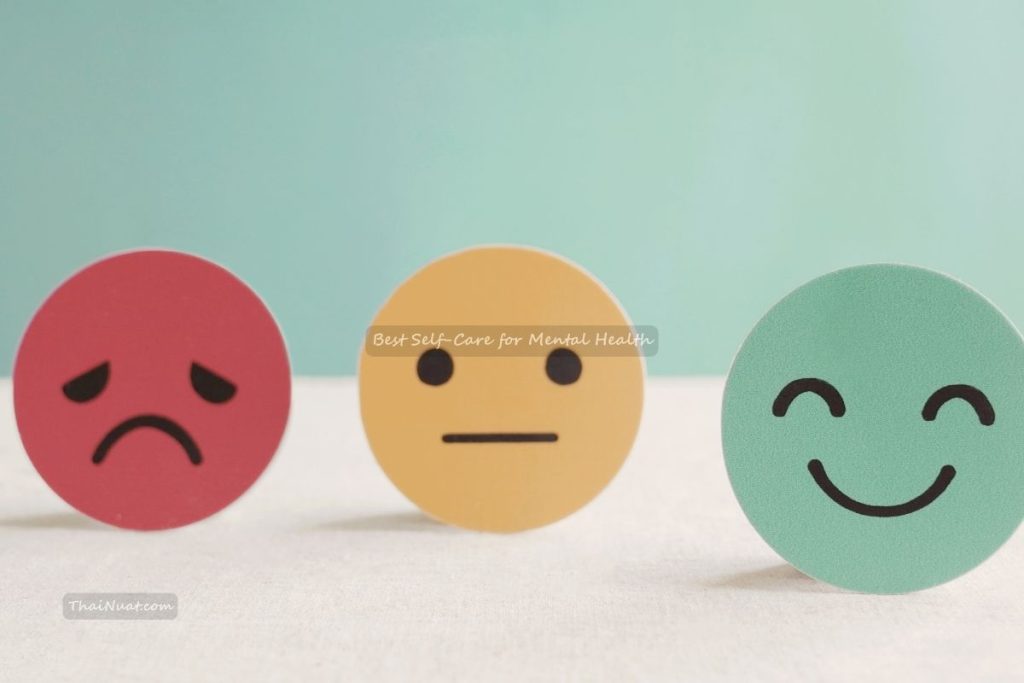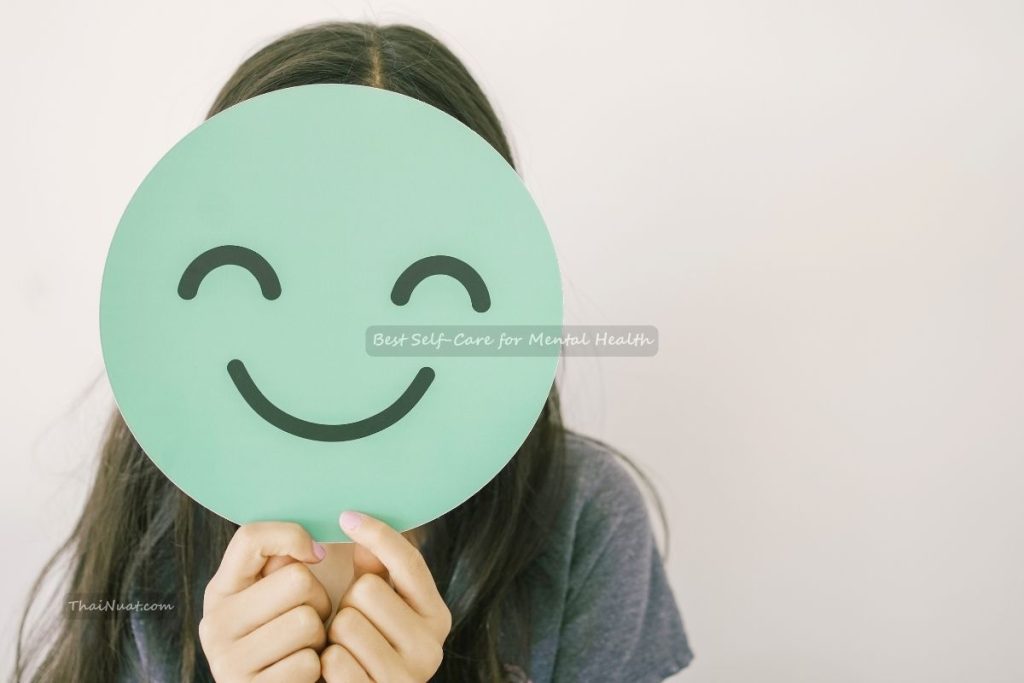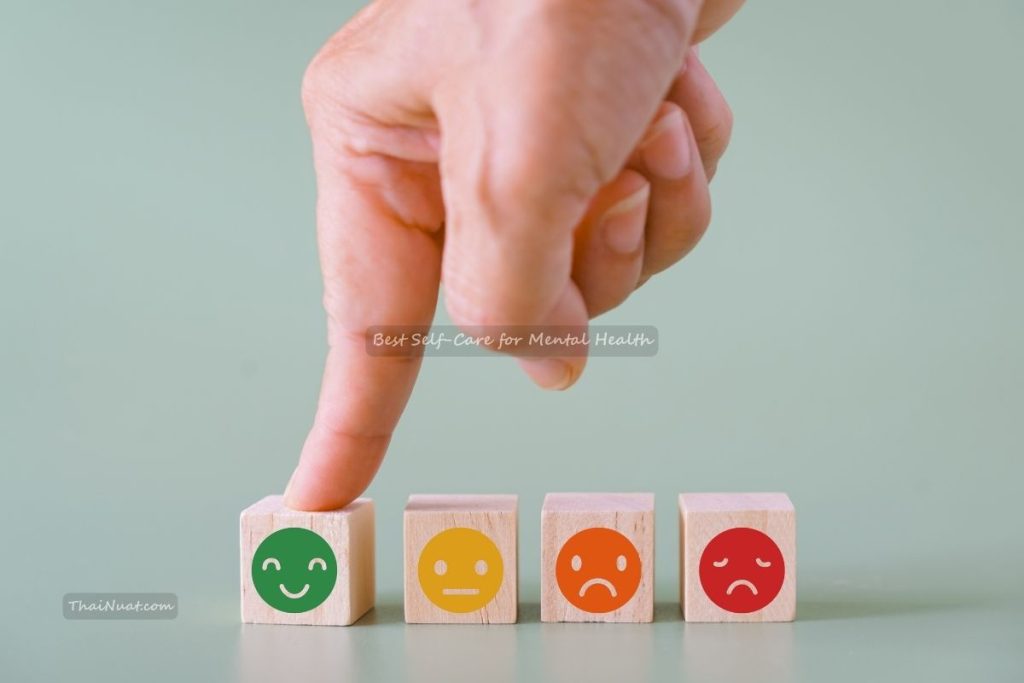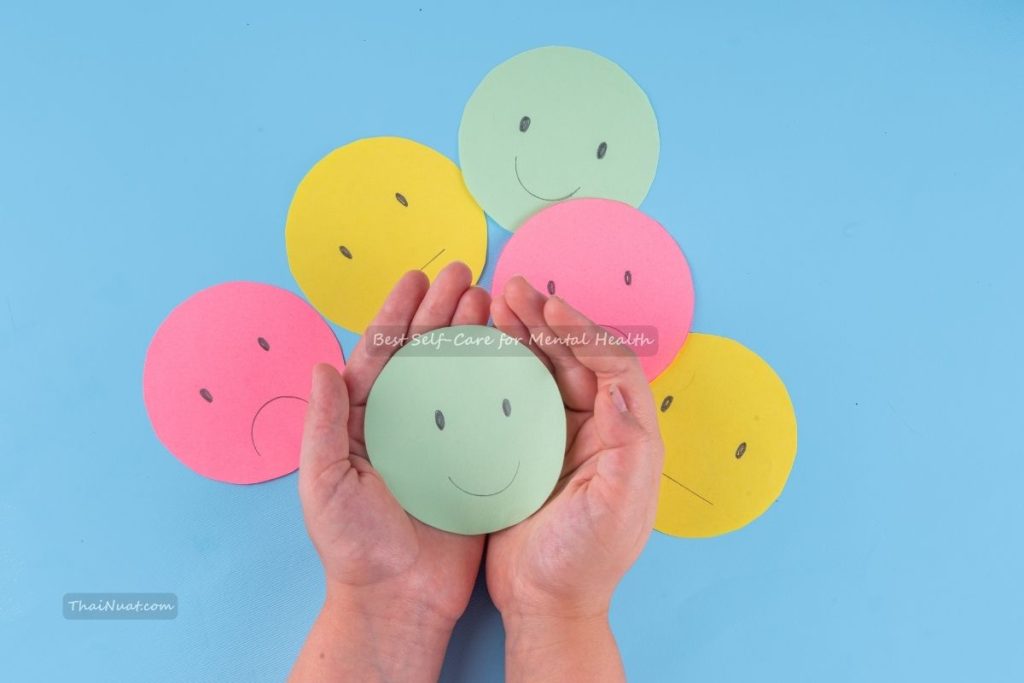- Introduction: Why Self-Care Isn’t a Luxury—It’s Emotional Hygiene
- Understanding Emotional & Mental Health (and Why They’re Linked)
- Why Self-Care Matters: The Evidence Behind the Calm
- Build a Daily Self-Care Routine You’ll Actually Keep
- Emotional Self-Care Practices: Handling Feelings with Skill
- Mental Self-Care Practices: Training the Mind Gently
- Lifestyle Habits That Quietly Supercharge Your Mind
- Overcoming Barriers (No Time, No Energy, No Motivation)
- Create Your Personalized Self-Care Plan (Template)
- When to Seek Extra Support (Therapy vs Self-Care)
- One-Week Starter Plan (So You Can Begin Today)
- Conclusion: Small, Kind, and Consistent Wins the Day
- FAQs (Quick Wins You Can Use Right Now)
Introduction: Why Self-Care Isn’t a Luxury—It’s Emotional Hygiene
Modern life pulls you in a dozen directions at once, which is why self-care for mental health isn’t indulgent—it’s maintenance. When you think of self-care, picture emotional hygiene: brief, consistent actions that keep your mind clear, your mood steady, and your nervous system resilient. In this guide, you’ll learn how to craft a daily self-care routine that’s simple enough to maintain and flexible enough to follow even on hectic days. We’ll walk through emotional tools (like boundary setting and journaling), soothing physical practices (breathwork, gentle yoga), and lifestyle anchors (sleep hygiene, digital detox) that make self-care for mental health practical and sustainable. By the end, you’ll have a realistic plan you can personalize, track, and actually enjoy—because self-care for mental health works best when it fits your life, not the other way around.
Understanding Emotional & Mental Health (and Why They’re Linked)
Emotional health describes how you identify, express, and regulate feelings; mental health focuses on cognition, mindset, and overall psychological well-being. The two influence each other constantly. For example, learning coping skills improves attention and mood, while stabilizing routines reduce anxiety spikes. Framing your strategy as self-care for mental health helps you see the big picture: you’re strengthening systems, not chasing hacks.

Common challenges you can address with self-care for mental health include stress overload, rumination, and emotional reactivity. Start by naming what you feel (labeling reduces intensity), then choose a matching practice: grounding when you’re overwhelmed, journaling when you’re tangled in thoughts, or a brisk walk when your energy is stagnant. These are practical coping skills for emotional health that build resilience, reduce signs of burnout, and make your day feel more navigable.
Key takeaways
- Think “systems,” not one-off fixes.
- Pair a feeling with a tool (e.g., anxiety → deep breathing; irritability → boundary check).
- Make self-care for mental health small, repeatable, and kind.
Why Self-Care Matters: The Evidence Behind the Calm
When practiced consistently, self-care for mental health improves mood, attention, and stress tolerance. It lowers baseline arousal (the “always on” feeling) and creates buffers that help you rebound faster after tough days. Simple stress management techniques like 4-7-8 breathing, a five-minute mindful pause, or a ten-minute walk reduce sympathetic overdrive and restore cognitive flexibility. Over time, self-compassion practices—treating yourself like someone you care about—shift your internal dialogue from harsh to helpful. Pair these with mindfulness exercises to strengthen present-moment awareness (less spiraling, more clarity). The goal isn’t perfection; it’s steadiness.
Build a Daily Self-Care Routine You’ll Actually Keep
A strong daily self-care routine is short, predictable, and portable. Design a “minimum viable routine” with one practice each morning, midday, and evening. This anchors self-care for mental health into the natural rhythm of your day.
Morning (5–10 minutes): Set Your Nervous System’s Tone
- Gratitude practice (3 quick notes).
- Deep breathing exercises for anxiety (e.g., 4-7-8 or box breathing, 2–3 minutes).
- One line of journaling for mental health (prompt: “What would make today feel good?”).
These micro-rituals prime attention and create early momentum in your daily self-care routine.
Midday Reset (3–8 minutes): Reclaim Focus and Energy
- One mini-walk or 10 gentle squats to discharge stress.
- Grounding techniques like the 5-4-3-2-1 method (name 5 things you see, etc.).
- 60-second “stop-scroll” pause for digital detox tips in action: close apps, inhale slowly.
Evening Wind-Down (10–20 minutes): Prepare for Deep Rest
- Sleep hygiene checklist: consistent lights-out, dim screens, cooler room, no late caffeine.
- Gentle stretching or yoga for stress relief (5–10 minutes).
- Short reflection: one win, one feeling, one intention (this supports self-care for mental health by closing mental loops).

Pro tip: Keep a small “self-care kit” in view (journal, pen, eye mask, foam roller, herbal tea). Visual cues make the daily self-care routine friction-light and repeatable.
👉 “Looking for practical ways to put self-care into action? Don’t miss our daily self-care routine checklist.”
Emotional Self-Care Practices: Handling Feelings with Skill
Emotions are data, not directives. Emotional self-care teaches you to listen without being led by the impulse of the moment. Use these emotional self-care ideas to build stability:
- Name it to tame it. Label the feeling (“sad,” “frustrated,” “lonely”). The act of naming dampens intensity and supports self-care for mental health in real time.
- Journaling for mental health. Try 5 minutes of expressive writing—what happened, how you felt, what you need now.
- Set healthy boundaries. Boundary scripts (e.g., “I can’t do that tonight, but I can help tomorrow”) protect energy and reduce resentment.
- Connection as regulation. Text a friend; ask for a five-minute vent or advice window. Social co-regulation is a powerful coping skill for emotional health.
- Self-compassion pause. Hand on heart; say, “This is hard, I’m not alone, I can be kind to myself.” These self-compassion practices de-shame struggle.
Use these tools when you sense signs of burnout: irritability, foggy focus, dread, or persistent fatigue. Effective self-care for mental health often means choosing one small emotional action—then repeating it.
Mental Self-Care Practices: Training the Mind Gently
Mental self-care supports clarity, attention, and realistic thinking. Here’s how to practice:
- Mindfulness exercises (2–10 minutes): Focus on breath or sounds; when the mind wanders, bring it back without judgment.
- Thought reframing: Ask, “Is there another possible explanation?” This reduces all-or-nothing thinking and strengthens self-care for mental health outcomes.
- Learning and hobbies: Novelty (a new recipe, a language app, a DIY skill) nourishes motivation and mood.
- Digital boundaries: Apply digital detox tips—batch notifications, app timers, and phone-free zones.
- Self-care activities list: Keep a 10-item menu (tea, balcony breath, stretch, walk, playlist, tidy corner, doodle, message a friend, mindful minute, read 2 pages).
These mental health self-care tips don’t require big blocks of time; they reward consistency.
👉 “If you want to expand beyond mental health into nutrition, herbal practices, and lifestyle, explore our holistic wellness practices for mind and body.”
Lifestyle Habits That Quietly Supercharge Your Mind
You can’t out-affirm a system that’s undermined by sleep debt, dehydration, and sedentary days. Lifestyle is the silent engine behind self-care for mental health.

- Sleep: Prioritize the sleep hygiene checklist. Aim for a pre-sleep wind-down, dim light, and temperature control.
- Food & hydration: Balance protein, fiber, and slow carbs; drink water through the day.
- Movement: Short, frequent sessions count. Start with 10 minutes of walking or yoga for stress relief—it’s better adherence than aiming for an hour you’ll skip.
- Nature & light: Morning light regulates circadian rhythm; greenery reduces stress load.
- Burnout prevention: Schedule micro-breaks between tasks; protect recovery time on weekends.
Small, stacked shifts create compounding benefits—and they make self-care for mental health feel easier, not heavier.
Overcoming Barriers (No Time, No Energy, No Motivation)
If you wait to feel motivated, you’ll wait a long time. Design for reality:
- Start tiny. Two-minute versions count (one paragraph of journaling; three mindful breaths).
- Bundle habits. Attach a practice to an existing anchor (tea → gratitude note).
- Permission to be imperfect. The goal is a self-care checklist you complete most days, not every day.
- Menu, not mandate. Use your self-care activities list to match your energy.
Remember: imperfect self-care for mental health beats a perfect plan you never use.
👉 “Looking for a natural energy lift? Don’t miss our guide on Thai green tea benefits for body and mind.”
Create Your Personalized Self-Care Plan (Template)
Here’s a simple framework you can copy into your notes app or journal. It embeds self-care for mental health into a plan you’ll actually follow.

Step 1: Choose your baseline (M-M-E).
- Morning (M): 1 breath practice + 1 gratitude line.
- Midday (M): 5-minute walk or 5-4-3-2-1 grounding.
- Evening (E): Stretch + lights-down ritual.
Step 2: Pick one emotional tool.
- Boundary script, self-compassion pause, or a 5-minute journaling for mental health session.
Step 3: Pick one mental tool.
- 2–5 minutes of mindfulness exercises or a short read.
Step 4: Add lifestyle anchors.
- Hydration target, sleep hygiene checklist, and one movement block.
Self-Care Plan Template (fill-in):
- My daily self-care routine minimums: ______ / ______ / ______
- My emotional tool this week: __________________
- My mental tool this week: _____________________
- Lifestyle anchors (sleep/water/move): __________
- Signs I need extra care (my warning lights): ____
- What I’ll do when I notice them: _______________

This self-care plan template keeps choices light and clear—exactly how self-care for mental health becomes a habit.
When to Seek Extra Support (Therapy vs Self-Care)
Self-care is powerful, but it’s not a substitute for professional help. Consider therapy when symptoms persist (sleep disruption, appetite changes, hopelessness, panic, or function decline). Think of therapy vs self-care as “both/and.” Therapy can sharpen your tools, while self-care for mental health keeps your gains steady between sessions. If you’re unsure where to start, look for licensed providers in your region, ask your GP for referrals, or explore community clinics and telehealth options.
One-Week Starter Plan (So You Can Begin Today)
A structured starter week makes it easy to trial your daily self-care routine without overwhelm.
Day 1–2
- Morning: 2 minutes breathing + 1 gratitude line.
- Midday: 5-minute walk.
- Evening: 5 minutes of stretching; screens dim 30 minutes before bed.
Day 3–4
- Add 3 minutes mindfulness exercises.
- Use one boundary script in a low-stakes situation (set healthy boundaries).
- Write a 3-line reflection (journaling for mental health).
Day 5–6
- Try 5-4-3-2-1 grounding techniques.
- Do a 10-minute yoga for stress relief video.
- Review your self-care activities list and swap one that felt “meh.”
Day 7
- Assess signs of burnout: energy, focus, mood.
- Adjust your self-care plan template for the next week.
- Celebrate a win—this is how self-care for mental health sticks.
Conclusion: Small, Kind, and Consistent Wins the Day
Lasting change rarely comes from overhauls. It grows from small, kind repetitions—breath by breath, boundary by boundary. Treat your plan as a living document. Keep what works, replace what doesn’t, and remember that self-care for mental health is a relationship you build with yourself over time. Start with the daily self-care routine you can keep on your most average day, not your best one. Then stack the next habit. The calm you’re seeking is not out there somewhere—it’s in the next tiny action you’re willing to repeat. That’s the quiet power of self-care for mental health.
Optional Appendix: Your Pocket Self-Care Menu
Use this as a rotate-and-repeat self-care activities list:
- 3 slow breaths • 1 cup of water • tidy one surface • stretch 2 minutes
- 10 squats • 5-minute walk • name 3 feelings • send one “thinking of you” text
- 2 pages of a book • mindfulness exercises (2–5 minutes) • tea + balcony
FAQs (Quick Wins You Can Use Right Now)
1) What’s the fastest practice to calm anxiety?
Try 60–120 seconds of deep breathing exercises for anxiety. If you’re in public, pair it with a discreet grounding technique like feeling your feet and naming three sounds.
2) How do I keep a routine when I’m busy?
Shrink it. A two-minute daily self-care routine done most days beats a perfect plan done never. Use habit bundling (after coffee → gratitude line).
3) I hate journaling. Alternatives?
Voice notes, drawing, or a one-line “mood + need.” The goal of journaling for mental health is processing—not prose.
4) Is scrolling really that bad?
It’s not moral; it’s mechanical. Infinite feeds spike arousal. Apply digital detox tips: set app timers, keep phones out of the bedroom, and add friction (log out).
5) When should I seek therapy?
If symptoms persist >2 weeks, worsen, or impair daily function. Therapy vs self-care is not a competition—both together often work best, with self-care for mental health stabilizing your days between sessions.










